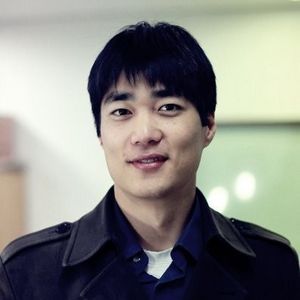GTU Communications
A Vision for Tomorrow: GTU Alum Myoung-Ho Sin on Nurturing Faith and Leadership at BPMH
Rev. Dr. Myoung-Ho Sin (PhD ’21) is the Executive Director of the Berkeley Presbyterian Mission Homes (BPMH). Born and raised by Korean immigrants in Germany, he quickly learned that living in a multi-ethnic and international community has great potential if the vision and goals of people align with one another. At the GTU, Myoung was able to combine his engineering background with his faith and identified climate change as one of the most pressing challenges that humankind must face because of its likelihood of occurring and its impacts on the world. Now, as the Executive Director at the BPMH, he helps other theology students, scholars and missionaries on their journey. Myoung aims for BPMH to be carbon neutral by 2029. In a recent interview with GTU Voices, Myoung shared how his education in Theology and Ethics at the GTU has shaped his leadership at BPMH. This article is based on that conversation.
GTU: Thank you so much for taking the time to chat! You earned your PhD from GTU in 2021. How did your theological education influence your work at Berkeley Presbyterian Mission Homes (BPMH)?
Myoung-Ho Sin (MS): At GTU, I studied Theology and Ethics, focusing on how religion can reshape our understanding of humanity in the face of climate change. The diversity at GTU mirrors the diversity at BPMH. Here, we live together, help one another with daily needs, and transcend cultural differences. It’s about unity through diversity.
GTU: What do you think attracts students to live at BPMH?
MS: International students carry a triple burden by having to pay tuition, high rent, and limited work opportunity since international students are not allowed to work off-campus. At BPMH, we wanted to ease the burden of high rent by providing housing at a significantly lower rent. Maybe even more importantly, we offer a supportive community—our board members are committed to helping residents connect with churches and institutions, which can lead to job opportunities. We are also intentionally family-friendly, with a playground for children, creating a joyful community that helps to take care of the whole family while residents are able to build friendships.
GTU: You mentioned networking opportunities for residents. What other programs does BPMH offer for leadership or spiritual growth?
MS: We have monthly prayer meetings, led by residents, where we share and learn with and from one another thanks to the diverse theological perspectives of our residents. We also hold commencement ceremonies, inviting speakers for discussions on the future of the church or missions. These events provide deep conversations and opportunities for residents to connect with local leaders and build meaningful networks for their future.
GTU: That sounds very valuable for students. Are these initiatives inspired by your own experience?
MS: Yes. When I was a student, I focused on my studies and completed my PhD in four years to save on tuition, but I was not able to plan for the time after graduation. That is when I realized how important it is to build networks while we are students. At BPMH, we aim to help our residents to build meaningful networks with faith leaders, churches, and other institutions during their stay, so they’re better prepared for life after graduation.
GTU: What has been the most rewarding aspect of your work at BPMH?
MS: When I see a resident, I see the number 10,000. That is the number of people, according to my rough guess, that each resident will reach out to in the next 25 years through their work—writing, teachings, and preachings. The number might be much higher, but it helps me to see the bigger picture and the potential of each resident. We’re not just serving individuals; we’re contributing to the future of people around the world as they are able to return to and impact their home communities. It’s also gratifying to work with our dedicated board members who bring wisdom and experience to BPMH. For the children, it’s like one big family. They play, teach, and learn from one another. It’s beautiful to see how they interact and grow in this diverse environment.
BPMH is more than low-cost housing; it’s community and network building. We hope to stay in contact with residents long after they leave and hear about their future successes. Our vision is to see how faith leaders become global leaders, and we want to help our residents in this process in any way possible.
GTU: How have your experiences with international students and faith leaders shaped your perspective on global issues?
MS: I was raised in Germany with a European understanding but also in a Korean household, so I’ve always had an international and multi-cultural perspective. At BPMH, we emphasize seeing the image of God in every person. When we do that, our attitude and behavior change, and society can change. This international understanding is key to what we do here, and we hope it will have a lasting impact when our residents return to their communities.
GTU: Why should prospective GTU students, especially international students, consider living at BPMH?
MS: It’s the community, the networking opportunities, and the chance to live with families in a safe environment. We also offer housing scholarships to help with costs. We celebrate residents’ achievements, from academic milestones to children graduating from preschool, elementary school, middle school and high school. At BPMH, we live in a happy, supportive community while also providing opportunities to grow and build meaningful relationships and networks.


